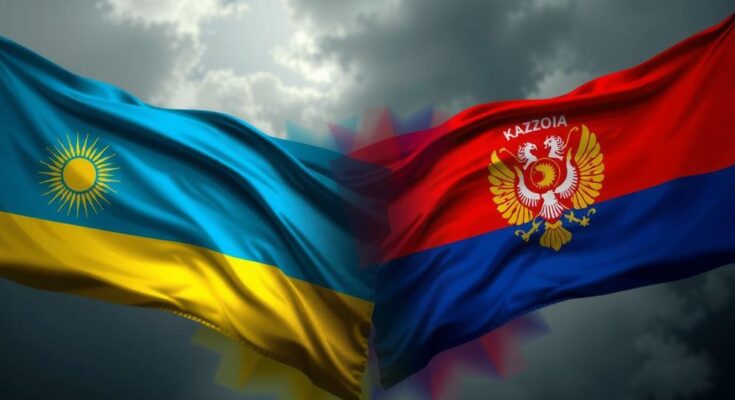Kazakhstan and Uzbekistan have recently opted not to join Russian-affiliated multilateral organizations, asserting their sovereignty in a shifting geopolitical landscape. Kazakhstan declined full membership in BRICS, preferring to retain observer status, while Uzbekistan decided against joining the EEU, citing a lack of benefits. These decisions highlight both nations’ attempts to navigate their relationships with Russia amidst the complexities arising from its actions in Ukraine.
In recent developments that demonstrate the shifting geopolitical landscape in Central Asia, both Kazakhstan and Uzbekistan have taken significant steps to assert their sovereignty against Russian influence. This is particularly notable in light of Russian President Vladimir Putin’s attempts to counter perceptions of his country’s diplomatic isolation. Both nations have recently declined to join key multilateral organizations closely tied to Russia, namely the BRICS and the Eurasian Economic Union (EEU). Kazakhstan has opted to maintain its observer status within BRICS rather than pursuing full membership, citing development prospects within the association. Uzbekistan, similarly, has decided against joining the EEU, a decision underscored by intensive scrutiny of its potential implications and a lack of perceived benefits, as indicated by officials during discussions about Tashkent’s future international affiliations. These choices reflect a complex balancing act: while remaining aligned with Moscow in some respects, both nations are actively seeking to navigate away from the repercussions of Russia’s international actions since its invasion of Ukraine. Analysts suggest that these actions have displeased the Kremlin, which has long considered Central Asia as a sphere of influence, yet both countries appear committed to asserting their autonomy on the global stage amid a landscape fraught with challenges stemming from Russia’s actions.
The geopolitical context surrounding the decisions made by Kazakhstan and Uzbekistan is intricately linked to Russia’s full-scale invasion of Ukraine in 2022, which has propelled both countries into a position where they must reconsider their alliances and affiliations with Russia. Historically, Central Asia has been viewed as a region significantly influenced by Russian policy; however, the current political climate necessitates a cautious approach as countries in the region seek to distance themselves from potential secondary sanctions and political backlash associated with Russia’s global standing. Kazakhstan, a member of various Russian-led organizations, has historically enjoyed a close relationship with Moscow. Nevertheless, the uncertain international climate has provided a unique opportunity for Kazakhstan and Uzbekistan to assert their independence by turning down opportunities for closer integration with Russian-led groups.
In conclusion, the recent decisions of Kazakhstan and Uzbekistan not to join key multilateral organizations linked with Russia signify a marked shift in the geopolitical dynamics of Central Asia. These moves reflect a broader trend of increasing autonomy as both nations seek to forge their own identities within the international community while managing the complexities of their relationship with Moscow. This evolving stance underscores the emergence of a nuanced diplomatic landscape wherein Central Asian countries are asserting their sovereignty amid external pressures, choosing to prioritize their national interests over traditional alliances with Russia.
Original Source: www.rferl.org




